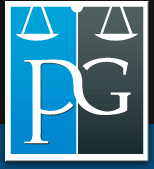Pardons And Expungements Can Give You A Fresh Start
People who have a criminal record in Connecticut may have difficulties finding employment, applying for a professional license, enrolling in school or obtaining loans. The expungement process gives eligible people the opportunity to cleanse their criminal record, and move on with their lives. Whether people have been accused of drug crimes or have been convicted of violent crimes, they may be able to start their lives over again through the expungement process.
Expungement Pardon vs. Provisional Pardon
An expungement pardon, or full pardon, completely clears a person’s entire criminal history, according to the Connecticut Board of Pardons. Once a pardon is granted, a person’s prior criminal history can only be viewed in certain emergency circumstances. The Board of Pardons also offers a Certificate of Employability This provisional pardon verifies a person’s ability to work; however, it does not erase his or her criminal record.
For a free initial consultation about obtaining an expungement or pardon in Connecticut, contact us at 203-371-1000.
Who Qualifies For Expungement?
Unfortunately, not everyone is eligible for expungement. The Connecticut Board of Pardons explains how people may be eligible for expungement three years after their sentence is completed for a misdemeanor record. People who have felony charges on their record must wait for five years from the date their sentence is before they are able to apply.
Since the Board of Pardons will consider all criminal charges, and not just one isolated charge, applicants for expungement should make sure that all of their dates are organized properly. This will maximize the chances that their expungement will be granted.
The Expungement Process
In order to start the expungement process, applicants must fill out a Criminal History Request for a Pardon and submit it to the State Police Bureau of Identification along with an application fee and a copy of their fingerprint card. Applicants who have had a criminal conviction within the last 10 years or have been on probation during that time must also submit a copy of the police report and a letter stating that their probation period has been discharged.
There are several other documents that applicants should include with their pardon request, including a copy of the driver’s license and any resumes, certificates or letters that people would like to have considered in their expungement case.
Getting Help From An Attorney
The expungement process can be extremely complicated and overwhelming for people who are navigating the legal system on their own. It may be beneficial to partner with a knowledgeable attorney who understands how to fill out an expungement application properly and can walk you through the process to ensure no mistakes are made.
Contact Us To Discuss Leaving The Past In The Past
To find out if an expungement or pardon is an option for you, schedule a free initial consultation by calling our offices in Bridgeport at 203-371-1000. You may also contact us online.
